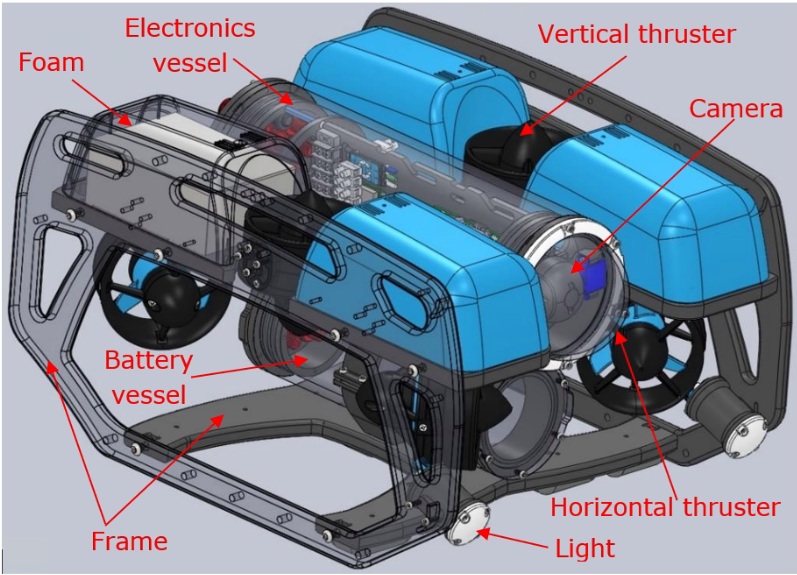Available courses
The objectives of the Environmental Policy & Planning course are multifaceted, aiming to equip students with the knowledge, skills, and competencies necessary to address complex environmental challenges and contribute to sustainable development initiatives. Key objectives include fostering an understanding of environmental policy frameworks and governance structures at local, regional, and international level, developing analytical and critical thinking skills for evaluating environmental issues and policy solutions, enhancing technical competencies in data analysis, and other relevant tools for environmental planning and management, promoting effective communication and collaboration in interdisciplinary settings, and cultivating a sense of responsibility and commitment to environmental stewardship and social equity.
- AUTeacher: Admin User
To give the students an up to date introduction to the concept of circularity and circular economy, including bio-economy (fresh carbon-based value chains), both in Europe and globally, to allow them to identify and develop suitable circularity concepts for plausible economic models encountered in their study or work. Furthermore, the course will present the newest knowledge and an overview of the current status of metrics for quantifying circularity and the issue of scaling circular business models.
- FDTeacher: Frank Akowuge Dugasseh
- AUTeacher: Admin User
The objective of the course is to train the students within basic concepts of digital technologies in farming systems, the integration of digital tools in crop production - methods applied, data generated and data used to monitor and manage the agricultural system in front of the challenges nowadays, including the use of various metrices to evaluate crop production and environmental state. Possible approaches for improving the food systems for efficient water and nutrients use are in focus in relation to improved use of external resources to minimize reactive flows of nutrients. Students will obtain both theoretical and practical knowledge on data in agriculture, models and tools to analyze data in the context of food systems and losses from fields, farm and system level.
- AUTeacher: Admin User
The main objectives are:
- Understanding the principles of remote sensing: Develop a comprehensive understanding of the fundamentals, techniques, and applications of remote sensing technology (e.g. satellite imagery, aerial photography...etc.).
- Exploring Wireless Sensor Networks (WSNs): Introduce the concepts, architectures, and protocols of wireless sensor networks, focusing on their design, installation, and operation in different scenarios.
- Integrating remote sensing with wireless sensor networks: Explore the integration of remote sensing data with wireless sensor networks for some application examples like environmental monitoring, disaster management, precision agriculture and many other applications.
- Data acquisition and analysis: Provide valuable insight into the acquisition, processing and analysis of remotely sensed data and sensor measurements.
- AUTeacher: Admin User
Environmental Risk Assessment I provides the conceptual, methodological, and governance foundations for analysing environmental risks affecting ecosystems, society, and infrastructure. The course introduces hazard, exposure, vulnerability, consequence, and risk within internationally recognised frameworks including ISO 31000, the UN Sendai Framework, and EU risk governance.
- AUTeacher: Admin User
The main objectives are:
- to gain broad understanding of how sensors work;
- to learn the basic sensors used in precision agricultural systems and on the interpretation of data they provide;
- to gain first-hand experience on current sensor system technology implemented for different purposes and situations.
- AUTeacher: Admin User
The objectives of this course are to:
- understand and use Czech language in a basic level, in order to respond in a variety of everyday communication situations.
- learn about Czech history and culture
- AUTeacher: Admin User
The aim of the course IoT Platforms and Systems is to provide students with knowledge on the technologies for the design, development, and implementation of the solutions in different sectors. IoT systems are proven to build a sustainable smart distributed and centralized, edge and cloud computing, mobile and fixed, wired, and wireless applications in different sectors such as smart agriculture, smart cities, smart water, smart transport, smart utilities, and many others.
At the end of the course students will have a basic knowledge of how to work, build and enhance the systems in a sustainable and interoperable way.
- AUTeacher: Admin User
The course aims to equip each student with the necessary skills to attain the initial accreditation level of the NI LabVIEW software. Consequently, students are expected to gain familiarity with the LabVIEW environment, comprehend its fundamental components and structures, develop rudimentary applications within the LabVIEW graphical programming environment, employ the state machine design pattern for application creation, and proficiently handle data input/output operations. Furthermore, participants will grasp the advantages of LabVIEW and its application in resolving real-world environmental challenges such as Resource Management, Environmental Protection, and Pollution Monitoring.
- AUTeacher: Admin User
The aim of the course on drone system (remotely operated vehicles) is to provide students with knowledge on the technologies for the design, development, and implementation of drones in different sectors. The complexity of the drones require knowledge in hardware and software design, sensors, actuators, cameras, communication technologies, data structures and data transmission, motion, kinematics, data management.
At the end of the course students will have a basic knowledge of how drones work, are built and could be implemented in different applications (industrial, environmental), how the drones could be used in the integrated sustainable solutions and be interoperable with other systems.
- AUTeacher: Admin User
The main aim of the course is to provide an up-to-date introduction to the concept of circularity and circular economy, including bio-economy, i.e., non-fossil carbon- based value chains, both in Europe and globally. The objectives are to protrude knowledge for identifying and developing suitable circularity concepts for plausible economic models encountered in real life. Furthermore, the course will present the newest knowledge and an overview of the current status of metrics for quantifying circularity and the issue of scaling circular business models.
The course consists of lectures, each associated with an hour of a brainstorm and a few hours of assignment. Prior to each lecture there is also reading material, whereas after the course lectures, there is preparation and passing of exam.
The working load is designed considering the time give to students to think about the subject, provide their assumptions in a pre-discussion i.e., brainstorming for 5 different products/industries (e.g., plastic, aquaculture, batteries, aluminium, agro-biomass) in the form of short description of the sector, so the students develop the system.























